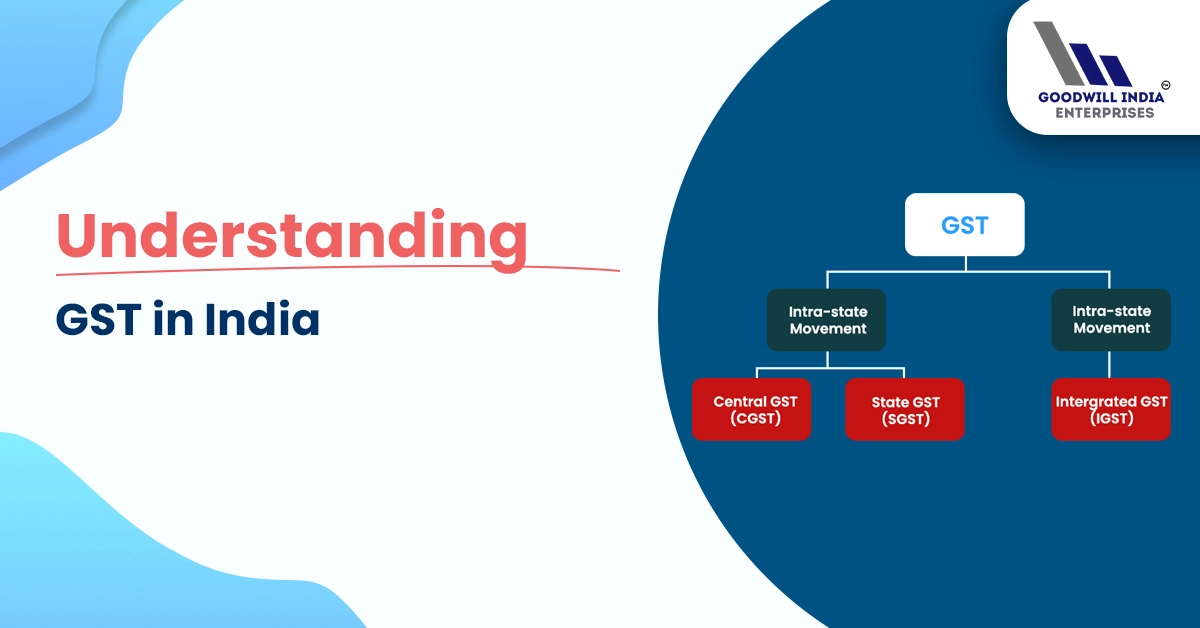The Goods and Services Tax (GST) is one of the most significant tax reforms in the history of India. It was introduced on July 1st, 2017, and replaced multiple indirect taxes that existed before. GST is an inclusive, multi-stage, destination-based tax that is imposed on every value addition goods in the supply chain. It has simplified the tax structure in India and has made the taxation process more efficient and transparent. In this blog, we will discuss the
importance of GST in India
Simplification of Tax Structure
Before GST, India had a complex indirect tax structure that consisted of various taxes such as excise duty, VAT, service tax, and central sales tax. Each tax had its own set of rules and regulations, making it difficult for businesses to comply with them. GST has replaced all these taxes with a single tax, which has made the tax structure simpler and more transparent.
Boost to the Economy
GST has been instrumental in giving a boost to the Indian economy. It has brought in more transparency and accountability in the taxation system, which has increased the trust of investors in the Indian economy. The introduction of GST has also helped in reducing the cascading effect of taxes, which has made goods and services more affordable. This has resulted in increased consumption and, in turn, has helped in the growth of the economy.
Increase in Tax Revenue
GST has helped in increasing the tax revenue of the government. With the introduction of GST, tax compliance has increased, and the number of taxpayers has also gone up. GST has a self-policing mechanism, which has made it easier for the government to track and monitor tax evasion. This has helped in increasing the tax revenue of the government, which can be used for the development of the country.
Ease of Doing Business
GST is the prime reason to do business in India easily. Earlier, businesses had to comply with multiple tax laws, which made it difficult for them to operate. With the introduction of GST, businesses have to comply with only one tax law, which has simplified the process. GST has also made it easier for businesses to claim input tax credit, which has reduced the cost of doing business.
Increased Competitiveness
GST is the key reason to make Indian goods and services more viable in the global market. Earlier, Indian goods and services were burdened with multiple taxes, which made them expensive. With the introduction of GST, the tax burden has reduced, making Indian goods and services more affordable. This has made them more competitive in the global market, which has helped in increasing exports and reducing imports.
Reduction in Corruption
GST has also helped in reducing corruption in the taxation system. With the introduction of GST, the tax system has become more transparent, and the chances of tax evasion have reduced. GST has a self-policing mechanism, which has made it easier for the government to track and monitor tax evasion. This has helped in reducing corruption in the taxation system.
Conclusion
GST has been a game-changer in the Indian taxation system. It has simplified the tax structure, increased tax revenue, made it easier to do business, increased competitiveness, and reduced corruption. GST has brought in more transparency and accountability in the taxation system, which has increased the trust of investors in the Indian economy. The introduction of GST registration has been a major step towards the development of the Indian economy, and it has helped in making India a more attractive destination for investors.
For GST registration and to keep your
GST filings up-to-date do contact Goodwill India Enterprises –
Chennai’s best GST registration company.





